Herman Melville - Moby Dick (1851)
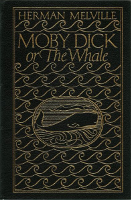
Melville was something, like most classic literature, that eluded me until a decade after school. This novel proved to me that prose and poetry can be woven together seamlessly. It has remained my favorite book for years, mostly because of its wide scope and ideological ferocity. So much humanity is found in this book, so much adventure, and the imagery surpasses anything I have ever read. Certainly this work was lost on many during its publishing, but the incredible passion of Melville was apparent to those who rediscovered it over a century later. My literary frame of reference would be incomplete had I never read this book.
Phillip K. Dick - Do Androids Dream of Electric Sheep? (1968)
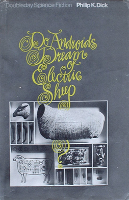
I credit this book with putting a spotlight on all the beautiful things I overlooked about fiction. For a majority of my life, non-fiction seemed the most pragmatic, worthwhile avenue towards knowledge, while my connotations of fiction were based entirely on simple entertainment. Dick illustrated to me that fiction can often be a more powerful means to investigate the nature of ourselves and of humanity. I was introduced to it by a wonderful friend, the late Christopher William Cardno, whom I will never be able to adequately thank.
Edgar Allan Poe - (Short Stories and Poetry)
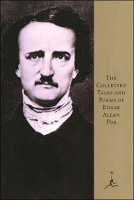
Poe's precision and intellect are absolutely daunting. If there is any writer capable of intimidating one's own ability, I put him at the top of the list. What I draw the most influence from Poe is his ability to create lush physical environments, that soak into the psychology of his characters, and ultimately, the reader. His full understanding of the distinct differences between the novel and short story is proven by how long his work has lasted. Though the novel has dominated for a long time, the short story is every bit as much an art, more difficult than people often give credit to.
William Gibson - Neuromancer (1984)
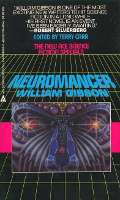
Neuromancer is probably as visionary as science-fiction gets. Gibson's attention to social and individual character aesthetic was illuminating to me. Clothes and fashion always seemed a necessary, basic element in storytelling, but this man managed to create an entire genre that I believe has still not been pushed to its limits. The story is deeply personal, romantic, yet very socially aware. His landscapes have political and cultural richness, and he created one of the most independent, headstrong female characters I've ever read.
Bram Stoker - Dracula (1897)
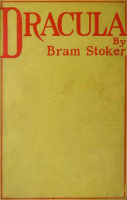
This was a far more recent read for me, and it continues to be more influential as I reflect on it. I did not expect to appreciate the epistolary format of this novel, but it really allows for amazing illustration of the compassionate nature of the characters. Though Van Helsing is historically the strongest personality of the protagonists, for me it was really Mina who shone brightest. Her incredible intelligence and perseverance was the saving grace of the group. I'd love to see a film adaptation that accurately illustrates her strengths, rather than watering her down to a damsel in distress.
Neil Gaiman - American Gods (2001)
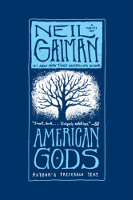
When thinking of unique characters, I'm not sure anything tops this one. Gaiman's ability to create the most exotic, unpredictable, yet endearing characters is enchanting. Even characters who have the nastiest of intentions are intriguing and full of dimension. It was a beautiful experience to slowly travel the roads of America along with faceless Shadow and his personality was gradually colored and enriched by the multitude of strange beings along the way.
F. Scott Fitzgerald - The Great Gatsby (1925)
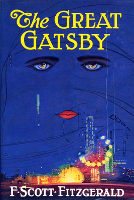
This book is a most incredible blend of classic and modern fiction. I think Fitzgerald found the perfect balance of the beautiful prose of authors fifty years before him, and what most of us think of as modern writing. Though I always cherish the detailed, ornate imagery of Melville, Fitzgerald definitely held a candle to it while making it potent in a very edgy, human way. I think it would be incredibly well received were it released even today.
